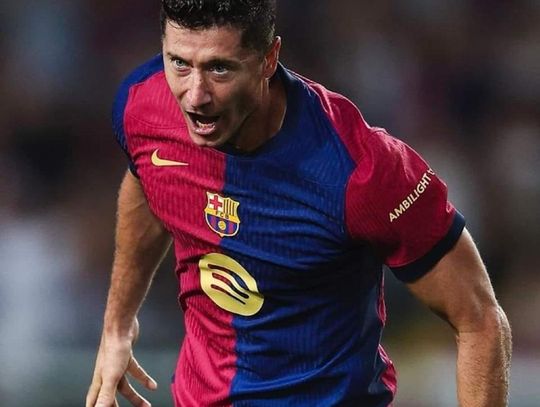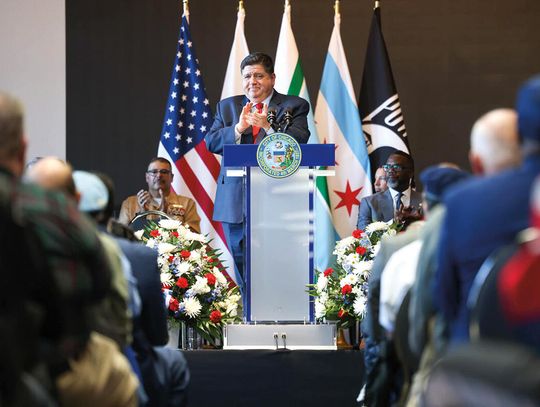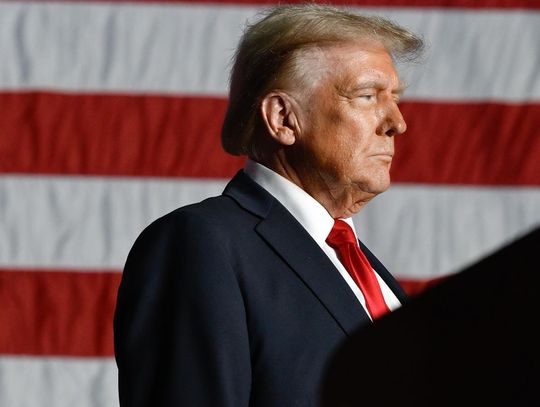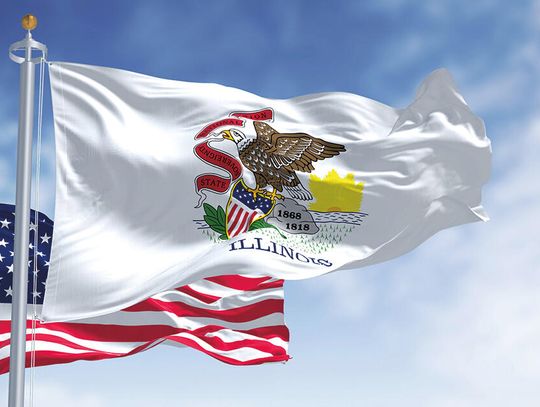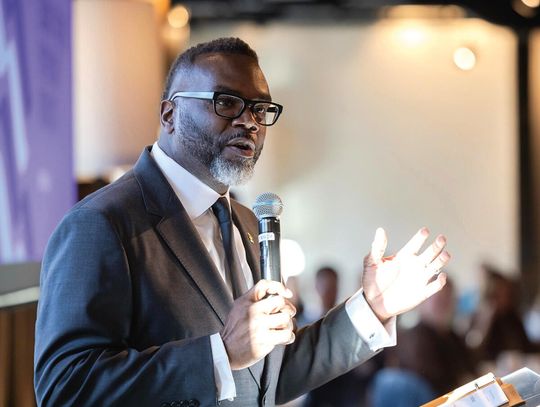The Warsaw Institute Foundation to pierwszy polski geopolityczny think tank w Stanach Zjednoczonych. Strategicznym celem tej organizacji jest wzmocnienie polskich interesów w USA przy jednoczesnym wspieraniu unikalnego sojuszu między dwoma narodami. Jej działalność koncentruje się na takich zagadnieniach jak geopolityka, porządek międzynarodowy, polityka historyczna, energetyka i bezpieczeństwo militarne. The Warsaw Institute Foundation została założona w 2018 roku i jest niezależną organizacją non-profit, inspirowaną bliźniaczą organizacją działającą w Polsce – Warsaw Institute. The Warsaw Institute Foundation is Poland's first geopolitical think tank in the United States. The strategic goal of this organisation is to bolster Polish interests in the U.S. while supporting the unique alliance between the two nations. Its activity focuses on such issues as geopolitics, international order, historical policy, energy, and military security. Established in 2018, The Warsaw Institute Foundation is an independent, non-profit organization inspired the twin Poland-based Warsaw Institute.
Wobec narastających problemów w kraju i pogrążania się reżimu w stagnacji, Władimir Putin zastosował terapię szokową. Zapowiedziana przez niego zmiana konstytucji i wymiana rządu mają dać nowy impuls polityce wewnętrznej. Mają też – przynajmniej na jakiś czas – dać Putinowi swobodę w realizacji ambitnych celów polityki zagranicznej. To typowa ucieczka do przodu.
Przejęcie kontroli nad Syrią po śmierci Sulejmaniego, rozgrywka o Libię po wejściu tam Turków, dalsze powolne duszenie Łukaszenki czy wreszcie kluczowy front ukraiński. Kreml prowadzi dziś jednocześnie co najmniej kilka niezwykle ważnych operacji zagranicznych. Putin musi więc mieć wolne ręce i czysty umysł – stąd radykalne ruchy na krajowym podwórku. Trzeba bowiem rozwiać wątpliwości co do tego, czy obecny prezydent pozostanie u steru rządów, czy odejdzie na emeryturę. Oczywiście Putin potwierdził to pierwsze. Kolejny raz wystąpił w charakterze „silnego przywódcy”, który z pewnością poradzi sobie z problemami Rosji. Dlatego zapowiedział zmiany ustrojowe i dlatego natychmiast wymienił rząd. Jak to ocenił jeden z rosyjskich publicystów, Putin „zakasał rękawy” i wziął się do roboty u siebie w kraju. A przynajmniej takie wrażenie mają odnieść Rosjanie.
Putin jak Nazarbajew?
Poprawki zaproponowane 15 stycznia w dorocznym orędziu prezydenta do Zgromadzenia Federalnego (Duma Państwowa i Rada Federacji), a było ich w sumie 11, zwiększają pełnomocnictwa parlamentu, osłabiają prezydenta, likwidują niezależność sądów wyższej instancji i wprowadzają do systemu rządów nowy element: Radę Państwową (na razie z nieokreślonymi kompetencjami). Obie izby parlamentu, Duma Państwowa i Rada Federacji, otrzymają prawo by realnie wpływać na skład rządu. Obecnie parlament głosuje tylko nad kandydaturą premiera przedstawioną przez prezydenta, zaś w nominacji ministrów w ogóle nie uczestniczy. Propozycja Putina daje Dumie już nie „udzielenie zgody”, ale „zatwierdzenie kandydatury premiera”. Może chodzić o to, że prezydent utraci prawo do rozwiązania Dumy w razie trzykrotnej odmowy przez nią zatwierdzenia kandydatury premiera. Duma ma też zyskać prawo zatwierdzania wszystkich ministrów zaproponowanych przez nowego premiera. Obecnie wyznacza ich prezydent na prośbę premiera. Po reformie prezydent straciłby prawo odrzucenia kandydatów już zatwierdzonych przez Dumę. Ciekawym rozwiązaniem jest nadanie Radzie Federacji prawa udziału w nominacji szefów struktur siłowych. Obecnie to prezydent wyznacza ministra obrony, dyrektora FSB i innych siłowików na mocy dekretów. Po zmianach musiałby to robić „w wyniku konsultacji z Radą Federacji”. Z konstytucji ma zniknąć zapis, że prezydent nie może zajmować stanowiska „dwa razy z rzędu”. Ale te zmiany, wbrew opinii części komentatorów, nie oznaczają jeszcze przejścia do republiki parlamentarno-prezydenckiej. Nawet po tych zmianach prezydent wcale nie będzie słaby. Widać, że Putin odchodzi od superprezydenckiej republiki do państwa z kilkoma silnymi ośrodkami władzy, między którymi będzie lawirował i był między nimi najwyższym arbitrem. Niezależnie od ostatecznie sprawowanej funkcji. Bo na dziś wszystko wskazuje na to, że Putin odejdzie z Kremla w 2024 roku. Pytanie na jakie stanowisko?
Być może będzie to przewodniczący Rady Państwa. Nie przypadkiem podczas orędzia wspomniał o tej instytucji. Jeszcze nie wiadomo, jakie uprawnienia będzie ona miała. Ale może być tak, że właśnie zasiadając na jej czele Putin będzie mógł kontrolować inne najważniejsze instytucje państwa, od gubernatorów i federalnych ministrów po administrację prezydencką i siłowików. Wzmocnienie Rady Państwa i stanięcie na jej czele to tzw. scenariusz kazachstański. Wcześniej to właśnie Nursułtan Nazarbajew poszedł tą drogą. Oddał stanowisko prezydenta zaufanemu politykowi, a sam objął inna funkcję, wciąż zachowując kontrolę nad Kazachstanem. Taki scenariusz w Rosji oznacza, że po 2024 roku Putin odchodzi ze stanowiska prezydenta i zaczyna rządzić krajem w nowym systemie na prawach „przywódcy narodu” stojącego na czele Rady Państwa (w tym wypadku jednak trzeba będzie jeszcze usunąć zapis mówiący, że na czele tej Rady stoi prezydent). Czy ten scenariusz jest realny? Zapewne więcej będzie można powiedzieć, gdy znane będą proponowane kompetencje odnowionej Rady Państwa.
Zmiany w 24 godziny
Głębokie zmiany strukturalne zapowiedziane przez Putina dadzą mu też dobrą okazję do kadrowego przewietrzenia gabinetów władzy i wprowadzenie na wyższy szczebel nowych twarzy. No i przetestowanie ludzi, którzy mają zastąpić obecną starzejącą się generację ludzi rządzących Rosją, wywodzących się jeszcze z ZSRS. Pierwszym krokiem w tę stronę jest dymisja Dmitrija Miedwiediewa. Putin nie może pozwolić sobie, by w okresie tak ważnych zmian, na czele rządu stała tak niepopularna i toksyczna wręcz osoba. Kto zastąpił zużytego i niepopularnego Miedwiediewa? Tutaj Putin zastosował manewr znany już zarówno z końca jego drugiej kadencji prezydenckiej, jak i wcześniej u Jelcyna. Wszystko nastąpiło błyskawicznie, od ogłoszenia przez Putina jego kandydatury do zatwierdzenia jej przez Dumę nie minęła doba. Na czele rządu stanął mało znany technokrata, szef Federalnej Służby Podatkowej (FNS) Michaił Miszustin. To lojalny putinista. Wszak jako wiceminister ds. podatków brał udział w tuszowaniu sprawy Magnickiego. Zaś ojciec to doświadczony oficer sowieckiego wywiadu. 53-letni Miszustin ma bardzo dobrą opinię. Kierując od 2010 roku Federalną Służbą Podatkową (FNS), unowocześnił ją i uczynił nadzwyczaj skuteczną. W przeciwieństwie do Miedwiediewa, obciążanego choćby niepopularną reformą emerytalną, nowy premier ma bardzo niski tzw. antyrating.
Czy Miszustin będzie jak Putin pod koniec rządów Jelcyna? Wątpliwe. Spełni raczej rolę podobną do tej wypełnianej pod koniec drugiej kadencji prezydenckiej Putina przez Wiktora Zubkowa. Nie wiadomo tylko, czy tak jak w 2008 roku, Putin odejdzie z Kremla by zająć stanowisko premiera. Raczej nie, raczej bardziej prawdopodobne jest przejście na stanowisko szefa Rady Państwa, której nadano by ogromne uprawnienia. Niewykluczone, że we wrześniu 2020 wraz z głosowaniem nad zmianami w Konstytucji odbędą się przedterminowe wybory do Dumy. Zaś w 2021 roku wybory prezydenta już z nowymi pełnomocnictwami. Jednak nic nie jest pewne. Wiele jeszcze się może zmienić w propozycjach Putina. Pewne jest jedno. Rosja będzie jeszcze bardziej autorytarna i antyzachodnia.
Grzegorz Kuczyński
dyrektor programu Eurasia w Warsaw Institute. Ukończył historię na Uniwersytecie w Białymstoku i specjalistyczne studia wschodnie na Uniwersytecie Warszawskim. Ekspert ds. wschodnich, przez wiele lat pracował jako dziennikarz i analityk. Jest autorem wielu książek i publikacji dotyczących kuluarów rosyjskiej polityki.
The Warsaw Institute Foundation to pierwszy polski geopolityczny think tank w Stanach Zjednoczonych. Strategicznym celem tej organizacji jest wzmocnienie polskich interesów w USA przy jednoczesnym wspieraniu unikalnego sojuszu między dwoma narodami. Jej działalność koncentruje się na takich zagadnieniach jak geopolityka, porządek międzynarodowy, polityka historyczna, energetyka i bezpieczeństwo militarne. The Warsaw Institute Foundation została założona w 2018 roku i jest niezależną organizacją non-profit, inspirowaną bliźniaczą organizacją działającą w Polsce – Warsaw Institute. The Warsaw Institute Foundation is Poland's first geopolitical think tank in the United States. The strategic goal of this organisation is to bolster Polish interests in the U.S. while supporting the unique alliance between the two nations. Its activity focuses on such issues as geopolitics, international order, historical policy, energy, and military security. Established in 2018, The Warsaw Institute Foundation is an independent, non-profit organization inspired the twin Poland-based Warsaw Institute.
The Warsaw Institute Foundation to pierwszy polski geopolityczny think tank w Stanach Zjednoczonych. Strategicznym celem tej organizacji jest wzmocnienie polskich interesów w USA przy jednoczesnym wspieraniu unikalnego sojuszu między dwoma narodami. Jej działalność koncentruje się na takich zagadnieniach jak geopolityka, porządek międzynarodowy, polityka historyczna, energetyka i bezpieczeństwo militarne. The Warsaw Institute Foundation została założona w 2018 roku i jest niezależną organizacją non-profit, inspirowaną bliźniaczą organizacją działającą w Polsce – Warsaw Institute. The Warsaw Institute Foundation is Poland's first geopolitical think tank in the United States. The strategic goal of this organisation is to bolster Polish interests in the U.S. while supporting the unique alliance between the two nations. Its activity focuses on such issues as geopolitics, international order, historical policy, energy, and military security. Established in 2018, The Warsaw Institute Foundation is an independent, non-profit organization inspired the twin Poland-based Warsaw Institute.
Reklama



